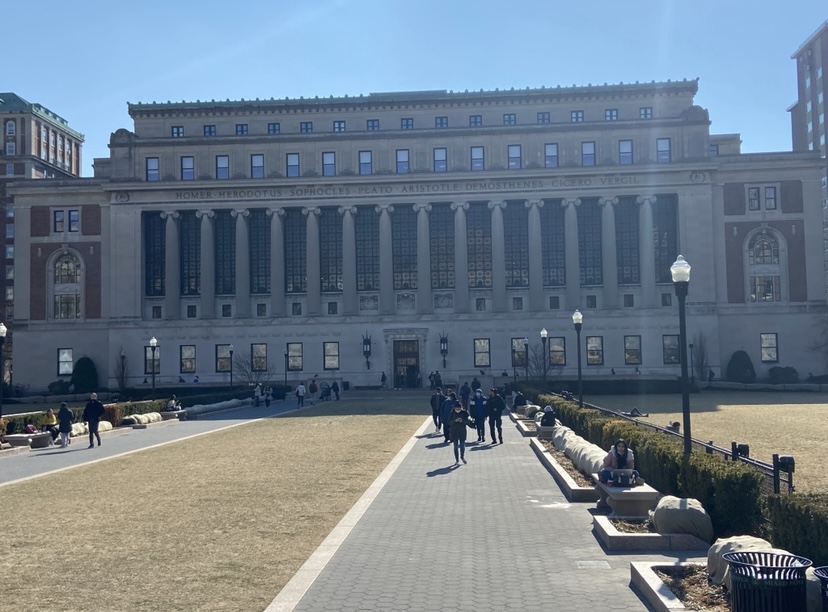
Jae Lee, a sophomore at Columbia University majoring in history and economics, is frustrated that he feels like he has to fight for what has been given to other minority students on campus.
“It’s inclusion,” Lee, vice president of the Korean Students Association, said after a town hall on March 23 that was hosted by the office of University Life, in partnership with the offices of Health and Public Safety. The event followed a statement issued by the university that condemned anti-Asian violence. And the statement followed communications sent by Asian students who want university officials to pay more attention to their concerns and fears amid a rise in anti-Asian violence.
“Over the past two years, we have seen a rise in incidents of bias and hostility toward people of Asian descent. These hateful acts – and the misinformed beliefs often driving them – have deep historical roots in this country. As a University community, we denounce these acts of violence and recognize the direct impact such acts have on our Columbia community, especially our Asian and Asian American members,” Bollinger’s statement read. It included the university’s resources for Asian students and “allies.”
While Columbia University President Lee C. Bollinger sent out a statement in response to shootings in Atlanta last March, along with other school leaders, the university was otherwise largely silent as anti-Asian hate crimes continued to spike in the city by 361% as of December, according to police statistics. Lee pointed out that March 16 was the one year anniversary of the Atlanta spa shootings, during which eight people, including six Asian women, were killed. The university didn’t mark the date as it did with its May 2021 remembrance of George Floyd’s death, Lee said, adding, “there is this weird seclusion of Asian people when it comes to minority issues.”
During the town hall, which lasted roughly an hour and a half, Joseph Greenwell, Vice President for Student Affairs in the University Life office, said that the university “monitors the trends daily” to gauge an appropriate time to release statements to the student body.
“We struggle about when is the right amount to communicate,” he said. “There are so many awful things happening in the world, in our country, and in our city, to many different communities.”
Greenwell also referred to the Bias Report Form, available for undergraduate students to report incidents, and said “we haven’t received many reports.”
Lee responded to Greenwell, noting that the university shouldn’t assume that a lack of reporting is reflective of a lack of incidents. In some cases, the university hasn’t communicated what resources are available, Lee said. For example, Lee was racially harassed a total of five times since the summer of 2021, but he reported none of those incidents to the school because he didn’t know he should: they didn’t happen directly on campus.
“They know that anti-Asian hate crimes are going up in the city. They read news about these things happening. But they notice that no one on campus is using related resources. It’s weird to jump to a conclusion that it’s not their problem and that maybe on campus and for their Asian students this isn’t an issue.” Lee said in an interview after the town hall.
Other students in attendance said that there is a serious need for more intellectual conversations about anti-Asian racism on campus.
“The town hall was an intimidating set up. It was more like a Q&A of us asking why things are done a certain way and the admins hijacking the conversation and defending themselves. I just wanted to talk and listen to other Asian students,” said Yinghao Li, a PhD student in electrical and electronics engineering at Columbia University. He added that he didn’t understand the mission of the town hall from the university’s initial email.
Lee echoed Li’s sentiments after the town hall. “We grow up thinking that these things happen because of us. Others need to do better, too. We aren’t responsible for everything,” Lee said.
On Feb. 22, New York University released a statement condemning anti-Asian violence after four of their students were attacked in February, leading to a conversation about the areas where their campus safety needs to improve. In the first week of March, Fountain Walker, vice president for NYU Global Campus Safety, sent out an email to the student body. “We want these incidents to end immediately,” he wrote, adding, “We are conscious of the unease that Asian members of the NYU community may be feeling right now; we stand united in full support of them.”
Sinnah Lim, an assistant professor at NYU Grossman School of Medicine, noted that the inconsistency in statements leads to a perception “that what happens to them is not as important.”
“Asian students shouldn’t feel like they are competing with other minority groups,” Lim added. “The fact that they constantly have to feel like they have to justify the support they need is a problem in and of itself.”
About the author(s)
Evelyn Nam is a Korean journalist at Columbia Journalism School covering Business and Asian American Affairs.




